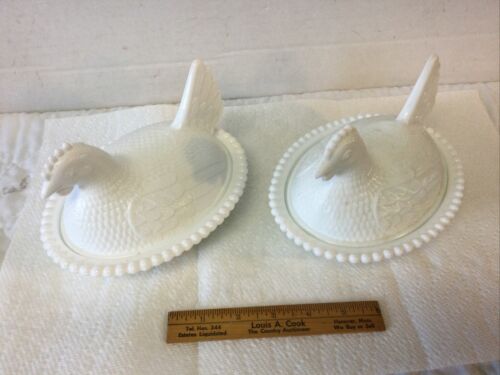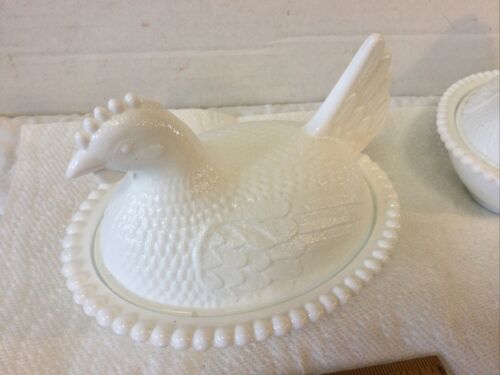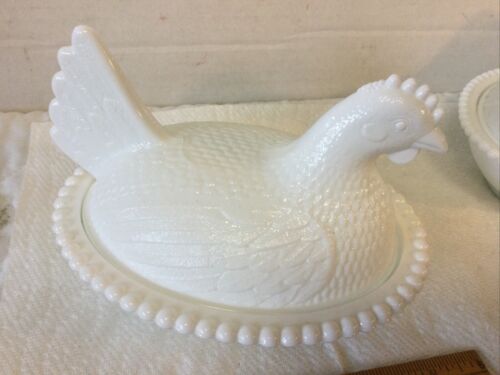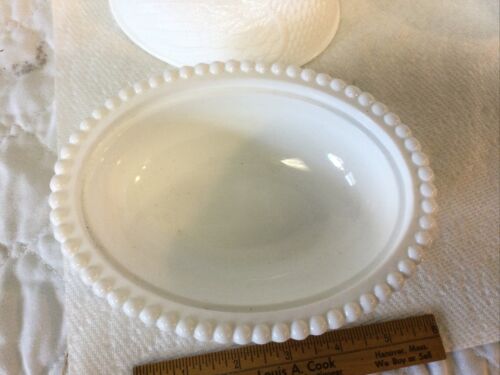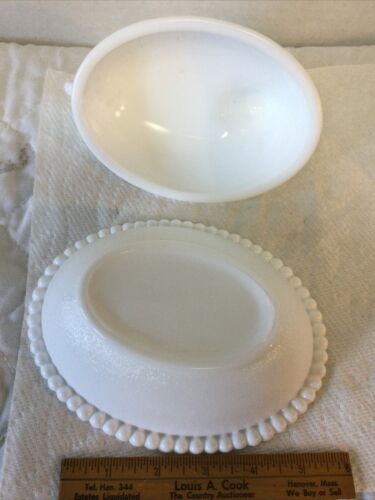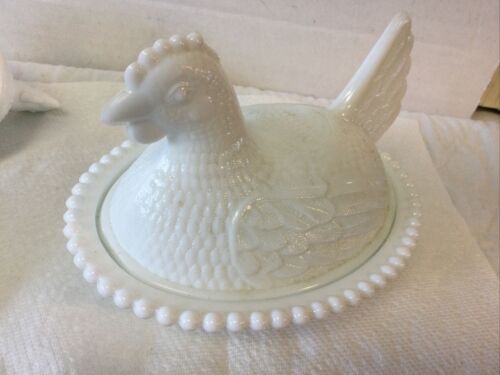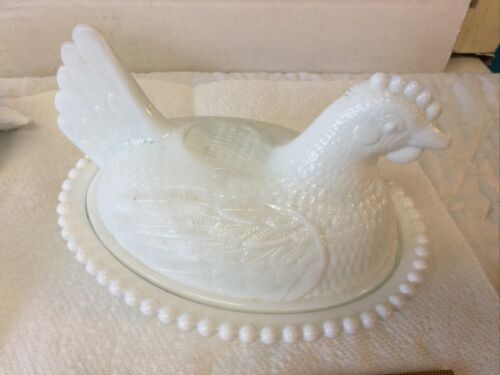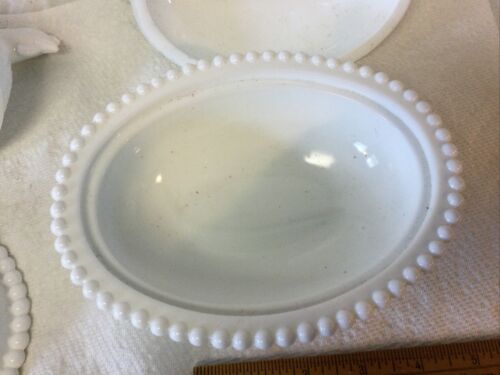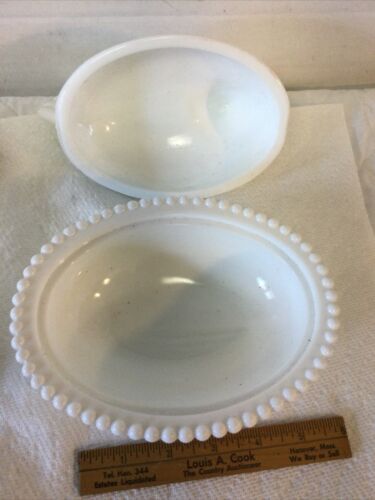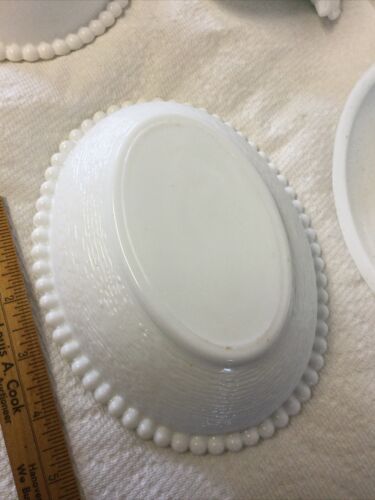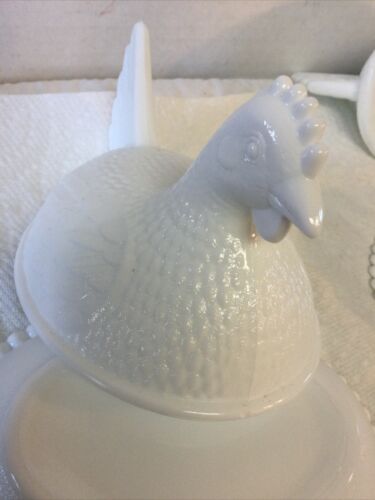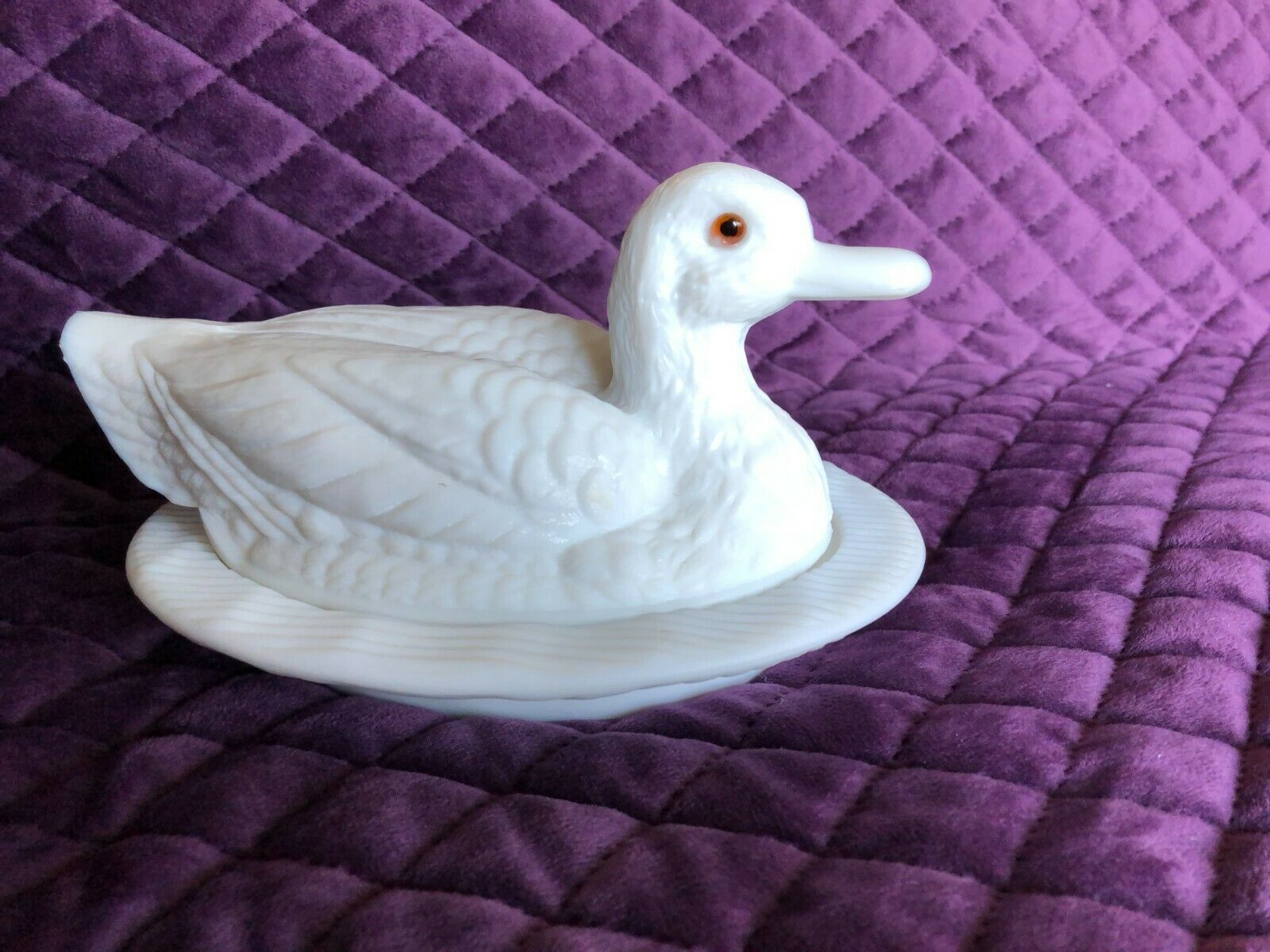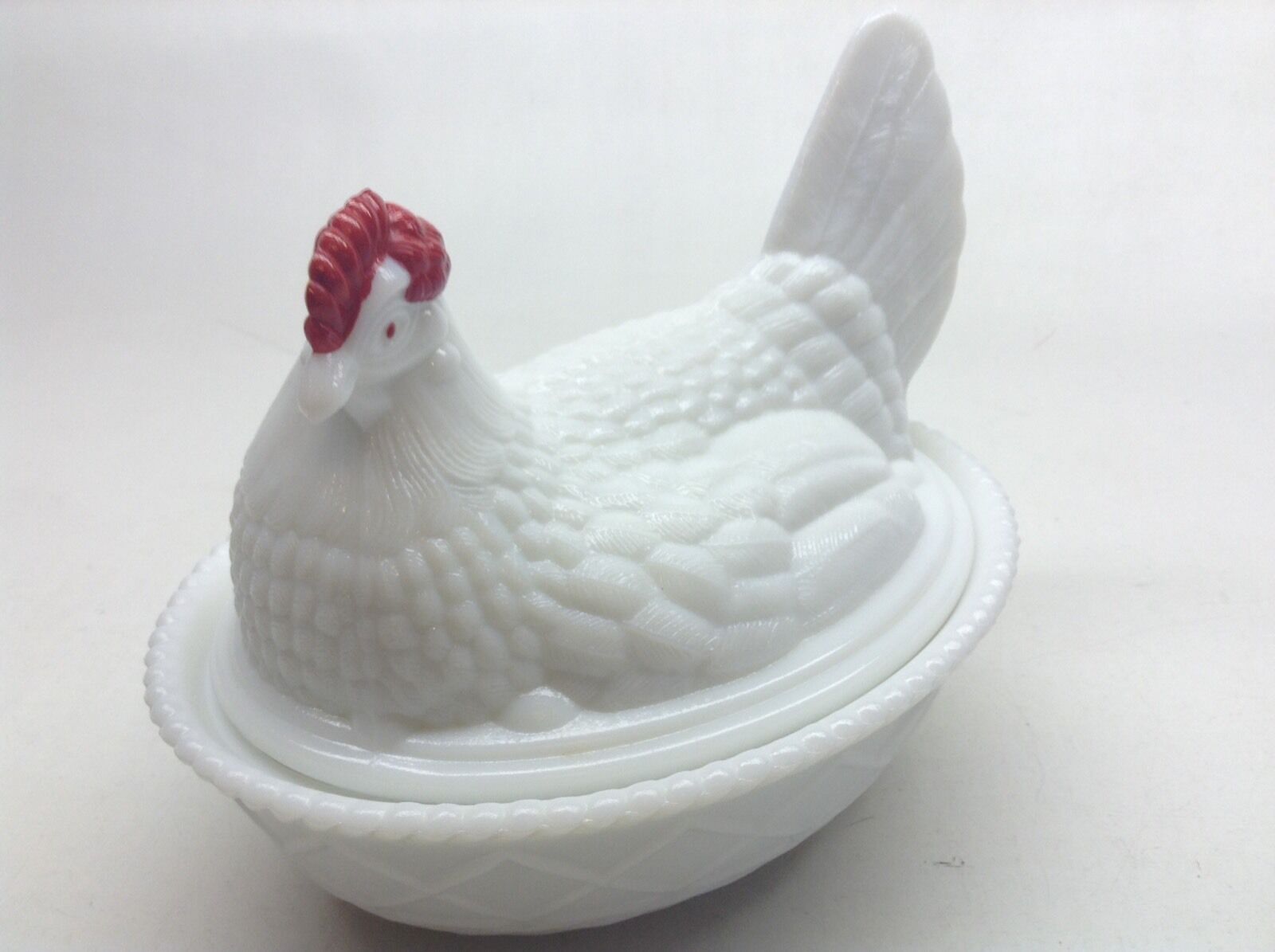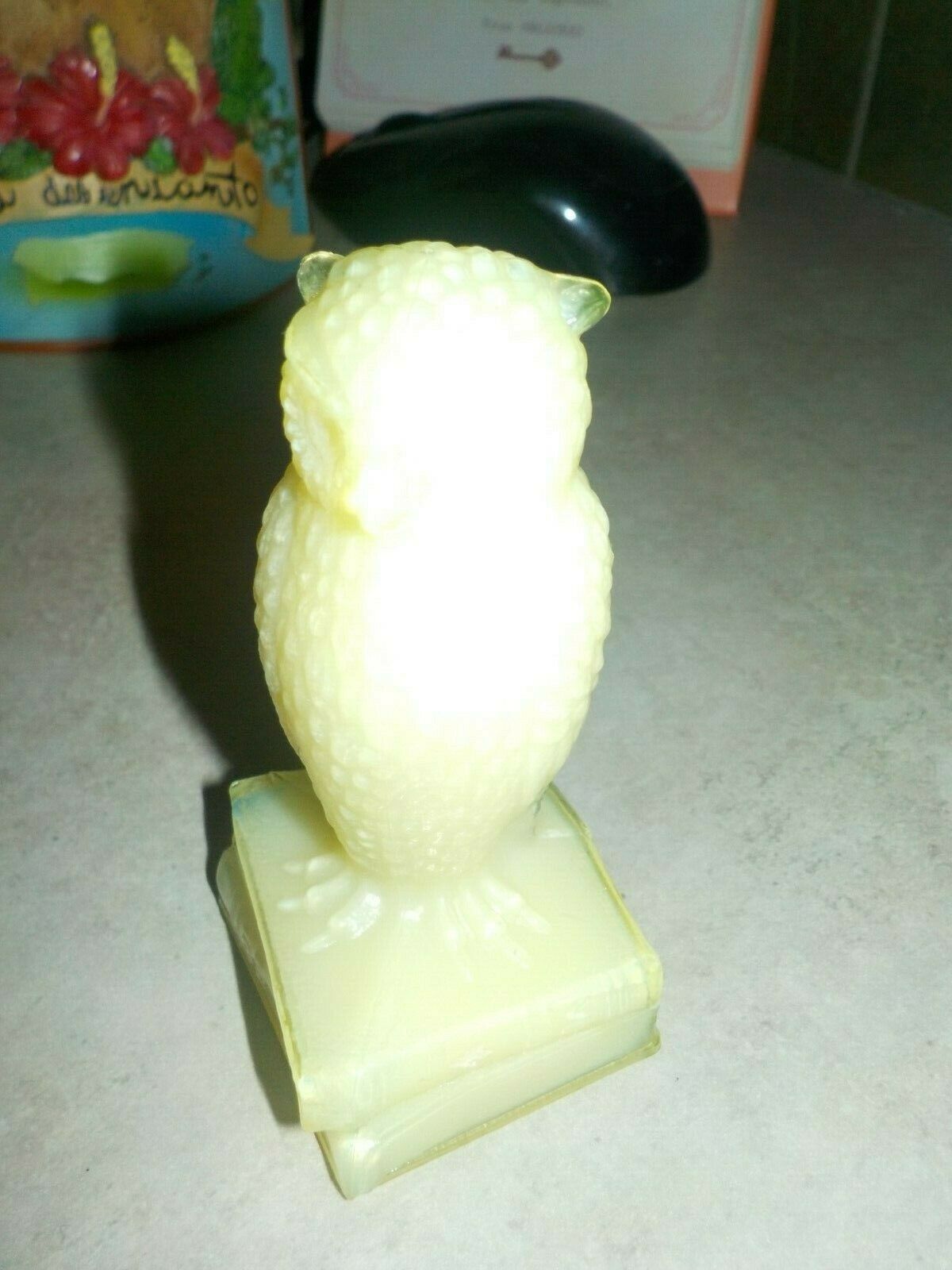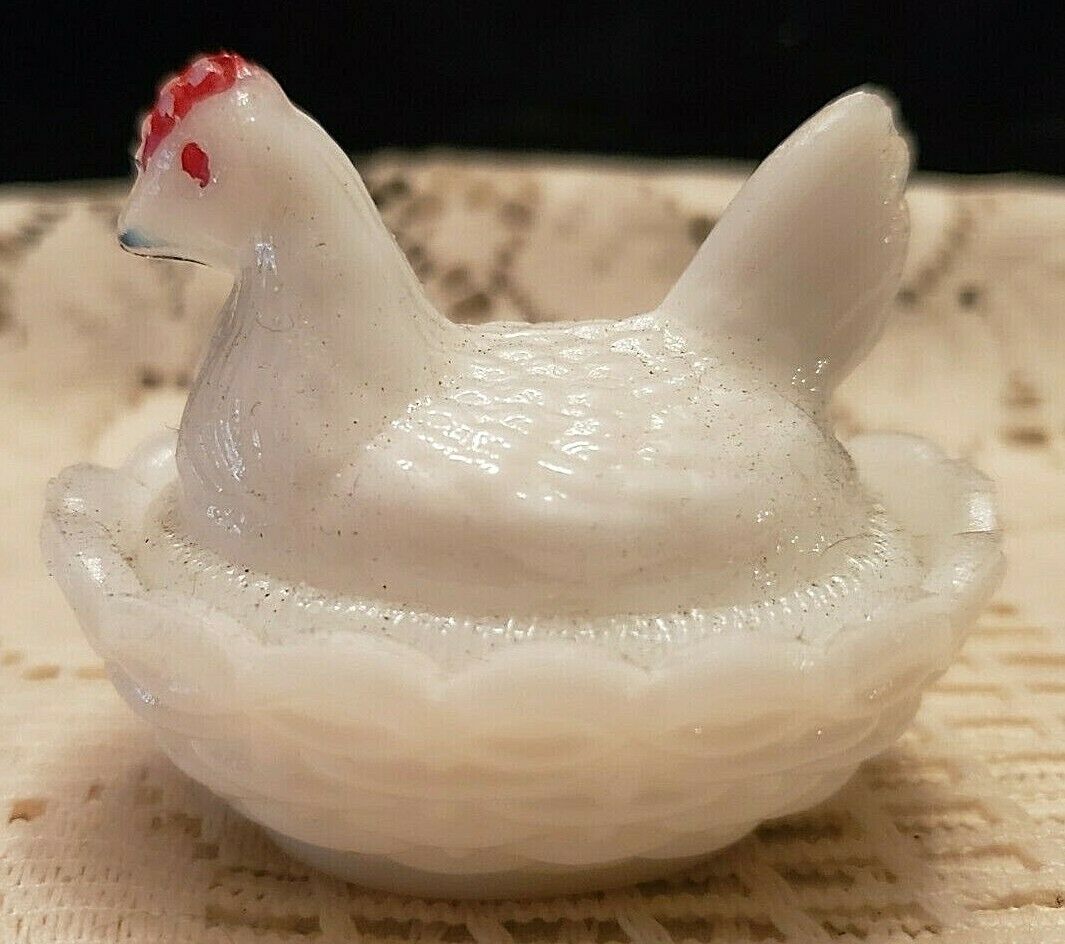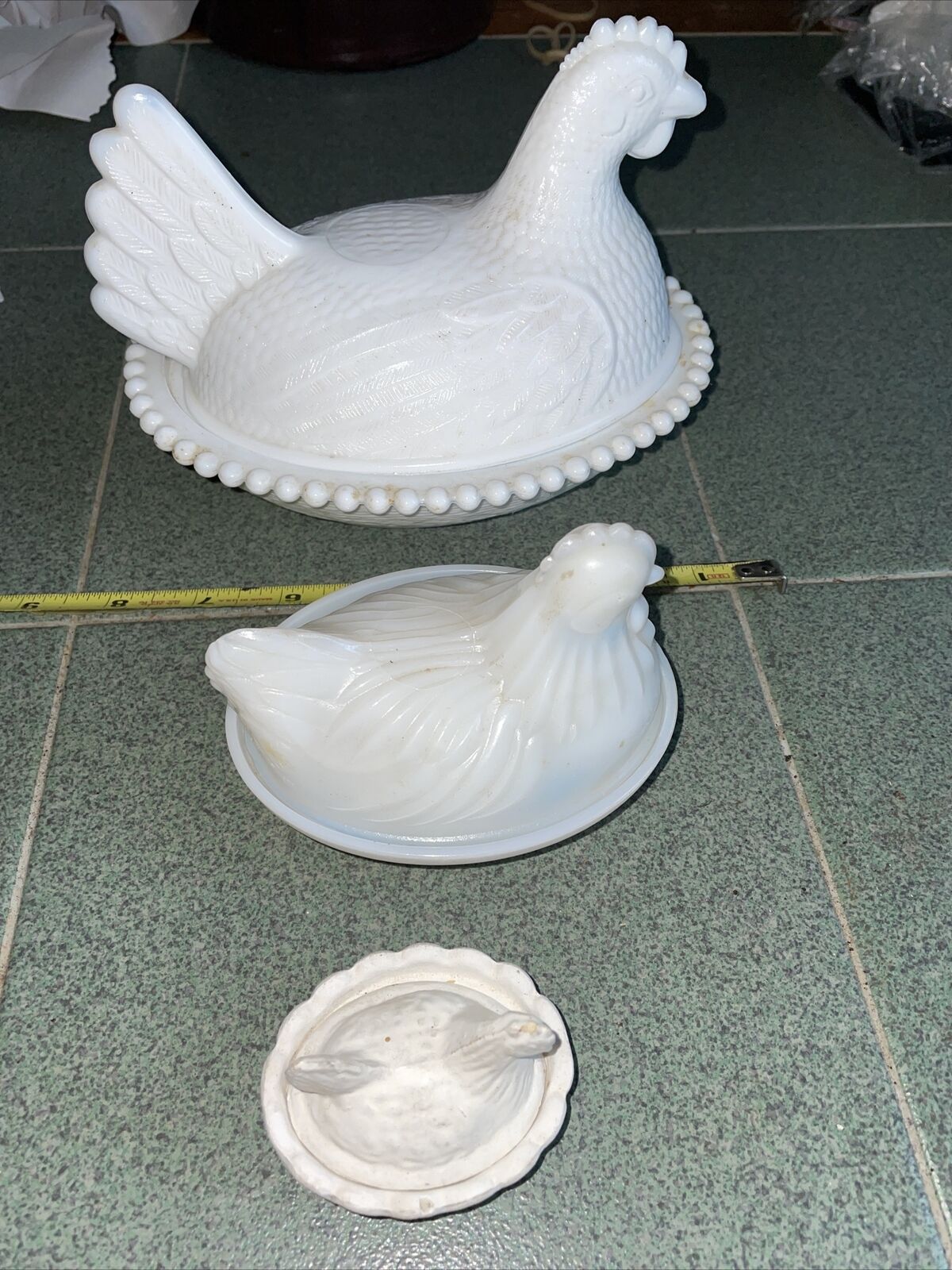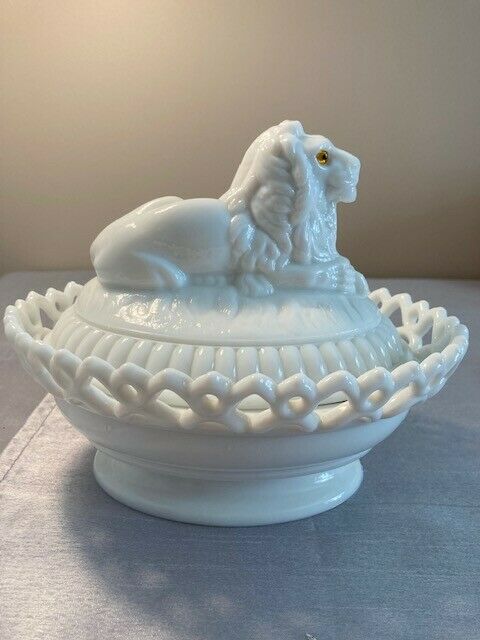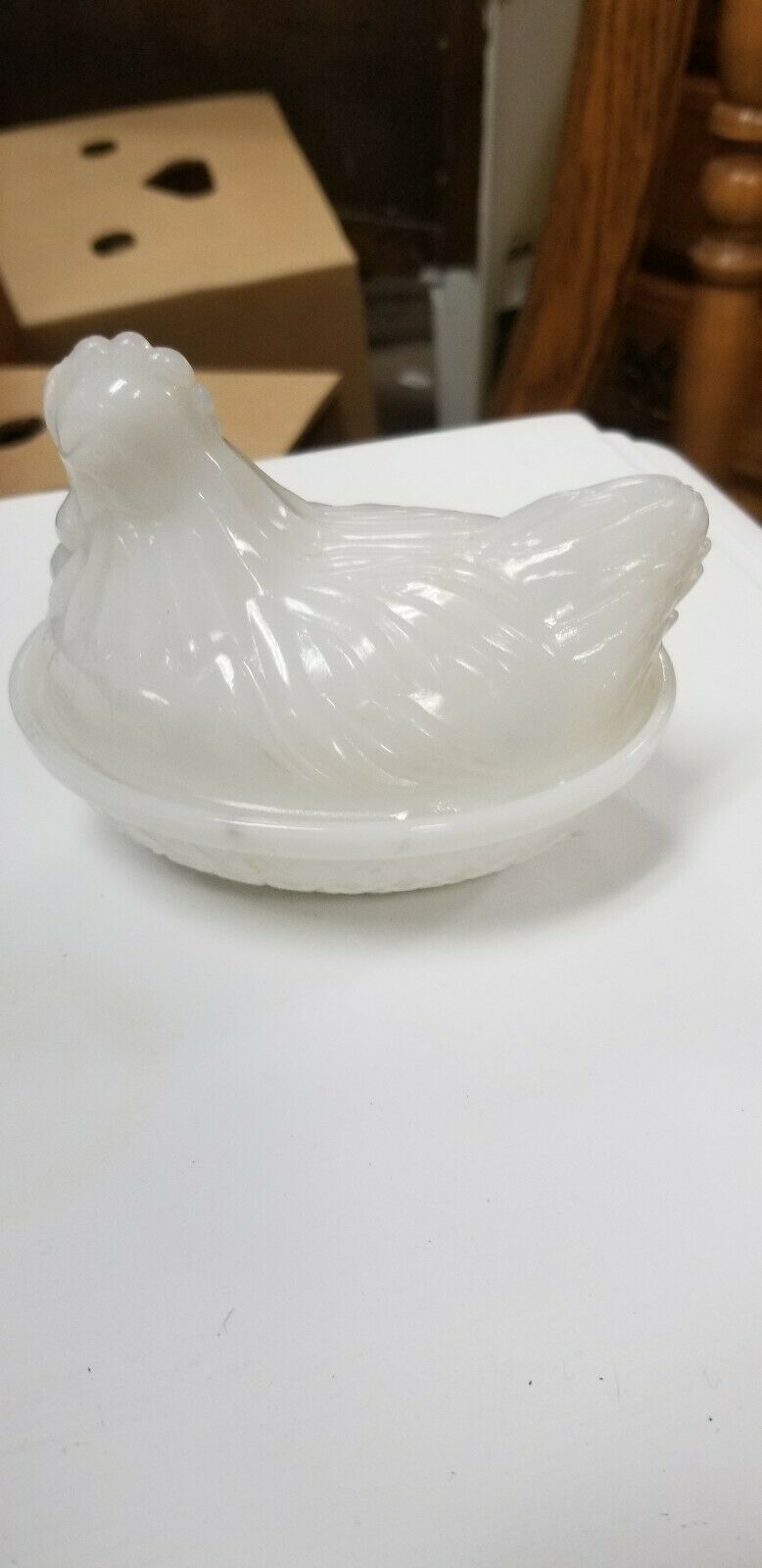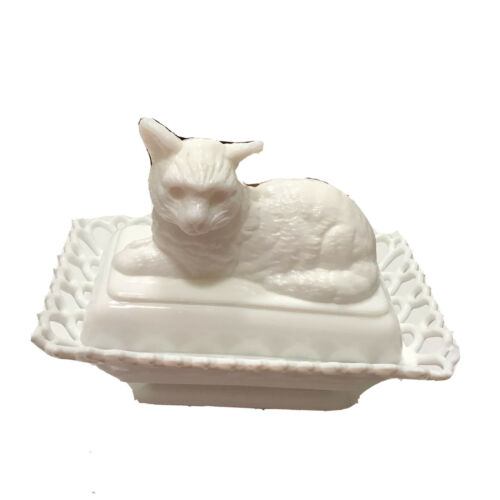-40%
2 Vtg Westmoreland Milk Glass Large Covered Chicken Nest Dish Bowls Beaded Edge
$ 10.53
- Description
- Size Guide
Description
2 Vintage Westmoreland Milk Glass Large Covered Chicken Nest Candy Dish Bowls Beaded Edge. Each measures about 5 1/2" x 7"; the paier weighs 3 pounds. Both are fine with no cracks or chips - see my 11 photos. The buyer gets both as shown.The Westmoreland Glass Company was founded in 1889 when a group of men purchased the Specialty Glass Company located in East Liverpool, Ohio, and moved it to Grapeville, Pennsylvania. Grapeville was chosen as the location of the factory because the property had a large source of natural gas. George West served as president of the company, while his brother Charles West was the Vice President. Ira Brainard was the primary financial backer of Westmoreland. His son J.J. Brainard was an officer in the company. Westmoreland's main production was pressed glass tableware lines, mustard jars, and candy containers. Westmoreland had its own mustard factory and tin shop on the property grounds of the factory. Charles West is regarded as the "Father of the Candy Container Industry" for the company's extensive production of candy containers. West Brothers was a separate company which produced the candy containers and other tinware while operating from the same factory.
In 1921, George West left the company and started his own glass company, George West and Sons. Charles West became president while J.J. Brainard became vice president of Westmoreland. The company changed its name to the Westmoreland Glass Company. Prior to his departure, George West created a large decorating department at Westmoreland. Under the direction of Charles West, the company began to make high-quality hand-decorated glass from the 1920s through the 1930s, some of which was exhibited at the Carnegie Museum in Pittsburgh, Pennsylvania.
In 1937, Charles West retired and sold his interest to the Brainard family, which controlled the company until 1980. In the 1940s, the Brainards phased out the high-quality hand-decorated glass and began to produce primarily milk glass.
